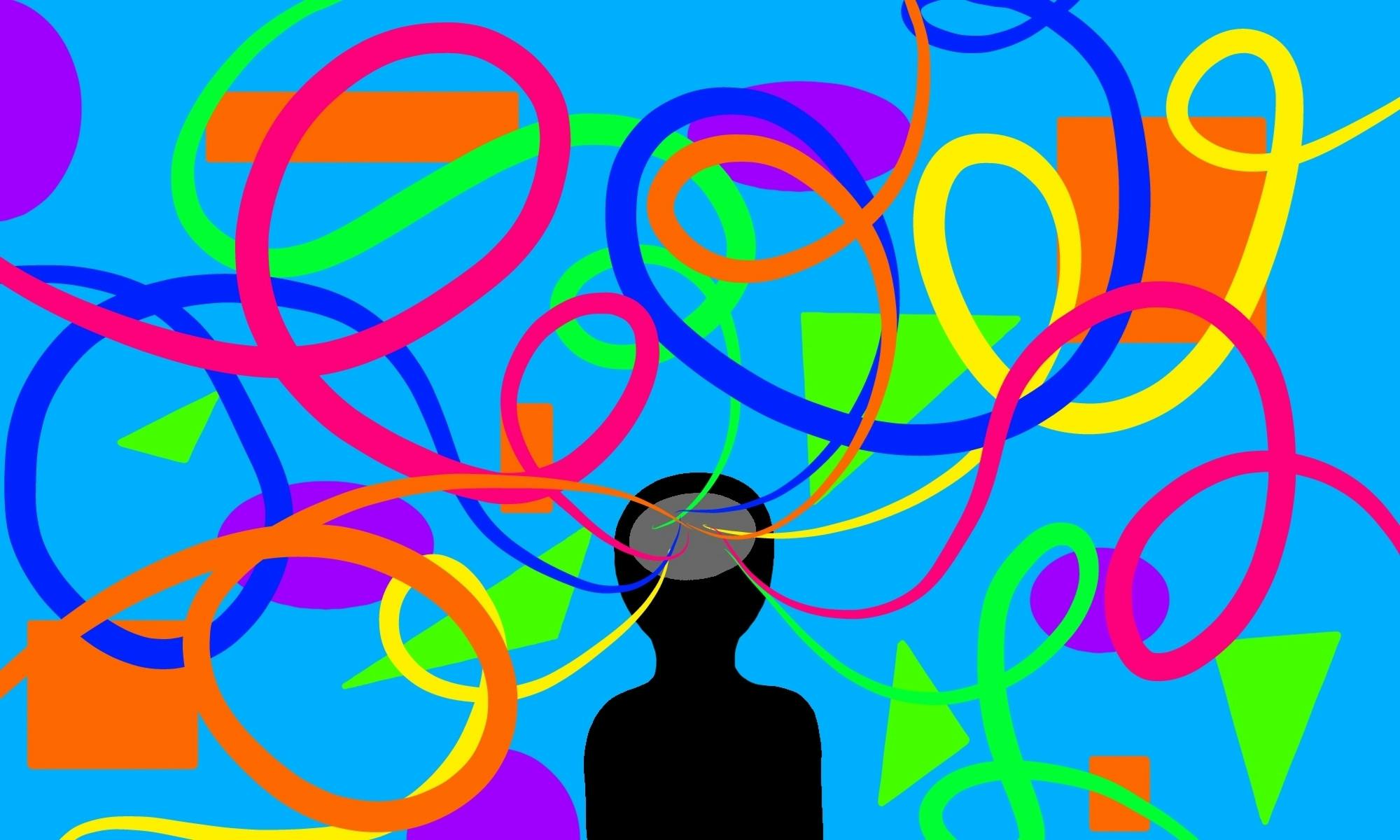ADHD is a disorder that affects 9.4 percent of children and adolescents in the United States, according to the Centers for Disease Control and Prevention. October is National ADHD Awareness Month — a time for people to educate themselves about the truth of the disorder.
ADHD is a neurodevelopment disorder that affects attention span, activity and impulsivity of diagnosed individuals, East Lansing neuropsychologist Dr. Jennifer Huffman said.
Jones said she experienced these symptoms at an early age.
“We had a class basket for all papers and assignments that needed to be finished … 90 percent of the papers in there were mine,” Jones said. “I wasn't really good at making friends. It's hard because having ADHD (means) you are not always good at picking up on social cues and, especially as a child, it is hard to make friends because you feel so different, but you also act out.”
Unlike Jones, Stacia Moroski-Rigney, the director of the College of Arts and Letters, said she did not receive her ADHD diagnosis until adulthood. After completing her doctorate, she noticed she never could sit down for an extended period of time and focus.
“I just couldn't sit to do anything," Moroski-Rigney said. "I would get halfway through a movie and go get a glass of water and then come back and drink the water and then take the empty glass back to the kitchen and I just felt like I was never just focusing on something.”
She said she was surprised when she got diagnosed because her whole life, she had been a good student and a well-behaved individual. Her doctor explained to her that ADHD looks different in males than females and that, often, diagnosis happens after attending upper education.
Moroski-Rigney said her doctor gave an example: a boy in third grade with ADHD might not be able to sit still, but a girl with ADHD may have color-coded binders, highlighters, pens and folders. She's just on top of everything.
"He explained that people-pleasers, whether they are male or female or nonbinary, but people-pleasers tend to develop coping strategies really early in life," Moroski-Rigney said. "They often go undiagnosed until they have some kind of a major life change.”
Huffman said she noticed this difference between boys with ADHD and girls with ADHD.
"What we know is that girls tend to have more inattentive types of symptoms of ADHD whereas boys tend to have more of the hyperactive-impulsive symptoms," Huffman said. "Maybe, they are acting out or climbing the walls, so to speak, that certainly comes to the attention of educators who are going to complain about that more and parents who are going to notice and complain about that more than a girl who was just quiet and may be lost in her own world and daydreaming."
Human biology sophomore Hailey Hogenson said her ADHD also affected her emotions. She said she has felt this firsthand: when she finds herself talking too much, Hogenson feels like she's being annoying and not quiet or thoughtful like other girls.
Hogenson was not diagnosed with ADHD until shortly before she turned 19, but she said she wishes she had been diagnosed sooner.
“It really affected how I viewed myself in high school when I wasn't doing as good as I was in elementary and middle school and I didn't know why,” Hogenson said. “I didn't think I had ADHD because I wasn't a necessarily bad kid, like I didn't have behavioral issues and there's always the stigma that if somebody has ADHD, then they act out a lot, and that wasn't me."
Instead, Hogenson just brushed off her inability to focus on the fact that she didn't like that certain subject or task.
Conversely, political science pre-law junior Dan Brown is happy that he was diagnosed at the age of 18. He grew up in an environment that did not allow for his ADHD to interfere with his life, which is why he received his diagnosis later in life.
“My dad is the same way I am," Brown said. "In fact, he most likely does also have ADHD, so it's just kind of the environment I grew up in and encouraged being outdoors and never sitting down too much,” Brown said. “It was my norm, that was me.”
Huffman said that most of the time, ADHD symptoms appear between the ages of three and six but can be seen as late as 12 years old. Sometimes these symptoms do not affect one’s life until later on, which is why their diagnosis is delayed.
Support student media!
Please consider donating to The State News and help fund the future of journalism.
When doing evaluations, Huffman said she likes to talk to parents of adults and get a look at what their early life looks like.
“It turns out that, for that adult, the mother had noticed all kinds of problems with focus and work completion, trouble sitting at the dinner table and those things are present early on," Huffman said. "The individual themselves might not always be aware of that, and that's the reason it's important to gather what we call 'collateral information' to help really carefully assess whether this diagnosis is there. It just may be the case that the symptoms aren't recognized as problematic until the demands really increase.”
Often, individuals self-diagnose ADHD because they have trouble focusing. However, it is important to note that this symptom can connect to a variety of things.
Huffman said problems with attention can be related to lack of sleep or symptoms of depression and anxiety. Other difficulties need to be ruled out in order to be more confident in the ADHD diagnosis.
Although ADHD does make life more difficult for those affected by it, it does provide some positives. Moroski-Rigney accredits her ADHD as being the reason she is a good administrator and friend.
“If there is anything I can say about myself, I never miss an email, I never miss a deadline, I never forget anything,” she said. “Because I am so trained that if I don't write it down, it will not happen. I use my phone for everything I have in my calendar."
Moroski-Rigney also uses reminders to help her stay on top of emails or texts to friends.
Brown agrees that there is a light to his ADHD.
“I feel quick-witted,” he said. “I constantly have eight to nine thoughts in my head at one time, so two or three of those are usually kind of funny, so I'm a very upbeat and happy person. I like to laugh. I'd like to think that ADHD helps with that and keeps me happy, but also, another positive is being able to just flip the switch and be ready to go and do anything. That's really nice too.”
Part of ADHD is the inability to pick up on social cues. This can present a challenge when being around others and attempting to make friends, but it can also be helpful.
“Sometimes, I miss social cues in the best ways possible,” Jones said.
He will go into a situation confidently, shake someone's hand and introduce himself to a complete stranger. Even though Jones doubts he should've done this, he still believes this confidence benefits him.
Of course, ADHD is still a disorder that has the power to negatively influence one’s life. An example is not being able to concentrate on one specific task or hobby.
“I think it holds me back, definitely,” Brown said. “It's frustrating every day … I have a lot of hobbies and the problem with adult-onset ADHD is hobbies are great, like you're interested in so much, but that also makes it so I don't dive into one enough."
For example, Brown said he loves longboarding but only goes once a month. Brown also said he loves playing the ukulele, but he couldn't improve because he hasn't picked it up in forever.
The proven best method for treating ADHD is a combination of using stimulant medication and therapy, Huffman said. She emphasizes the importance of getting tested, receiving a diagnosis and considering treatment.
“When ADHD is diagnosed, it's important to consider treatment because we know that individuals with diagnosed ADHD are at greater risk for serious car accidents, greater risk for using illicit substances like nicotine, marijuana and other drugs and alcohol when it's not treated.”
Section 504 of the Americans with Disabilities Act grants accommodations to students with ADHD, meaning educational establishments are required to provide accommodations.
“I do get accommodations by law, and those are so helpful,” Jones said. “I'm a four-point student, I got a really good SAT score. I wouldn't be where I am without them.”
Aside from utilizing medication and therapy as treatment, many patients who have ADHD develop coping mechanisms throughout their lifetime.
For Moroski-Rigney and Brown, this is list-making.
Brown said he has a book of blank pages he keeps around when studying. This book is where he writes down whatever random thoughts he has, like changing his desktop picture.
“So whenever I have distracting thoughts or something that I'm posed to go check something I just write it down," Brown said. "That way the fear of forgetting to do that because of my ADHD doesn't linger, I know I have it written down so I won't forget it.”
Receiving an ADHD diagnosis can be scary, and the disorder can prove to be a hardship. For many people, though, living with it becomes easier with time.
“It's definitely harder for me to focus, but I embraced a lot of the things that I used to hate,” Jones said. “I talked about masking fidgets and stuff — those have gotten worse, but I don't mask them as much so it's easier to live with.”
Hogenson said she knows exactly what she would tell a child with a new ADHD diagnosis.
“First of all, you're not stupid," Hogenson said. "I know a lot of ADHD people feel like they're stupid. Second of all, it's not bad to always want us to squirm around or find new things to do when you're bored of something. It's just how you tame yourself and keep yourself sane because if I feel like if I do focus on one thing that I absolutely hate, I'm going to be absolutely nuts."
Brown said he has learned a lot in the past few years since he got diagnosed with ADHD, and although it still proves to be a hurdle at times, it is not as much of a burden.
“I would probably just embrace it,” Brown said. “You are who you are. I would say, it could be worse. There are many other mental disorders that are worse than ADHD, and I would say don't let that define who you are. Still pursue the things they're interested in, don't think that ADHD is going to stop you from being able to do anything. It hasn't stopped me yet.”
Discussion
Share and discuss “ADHD: More than an attention disorder” on social media.







